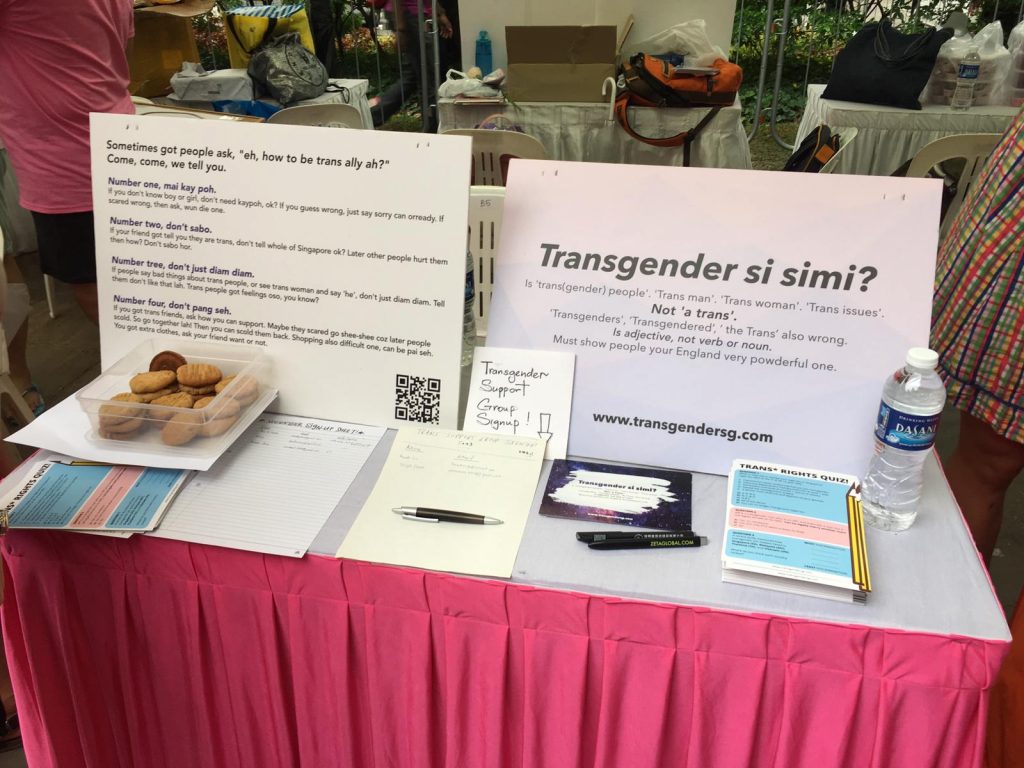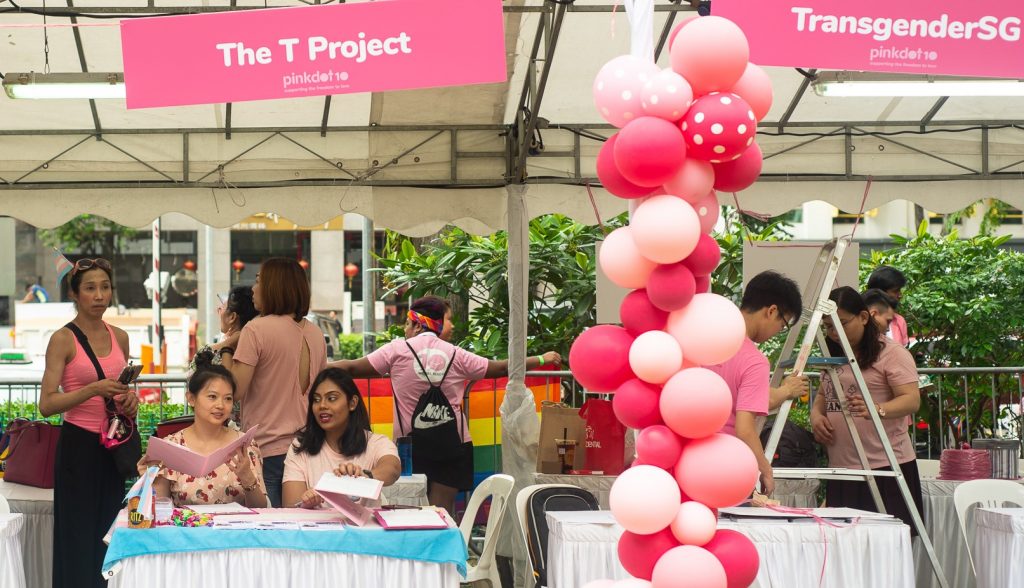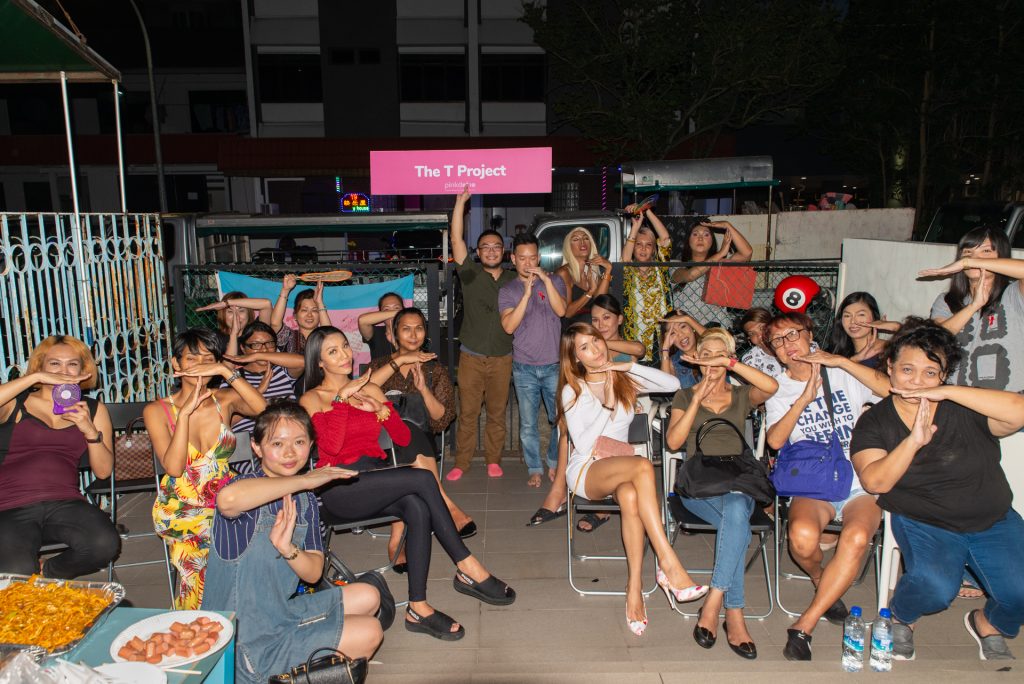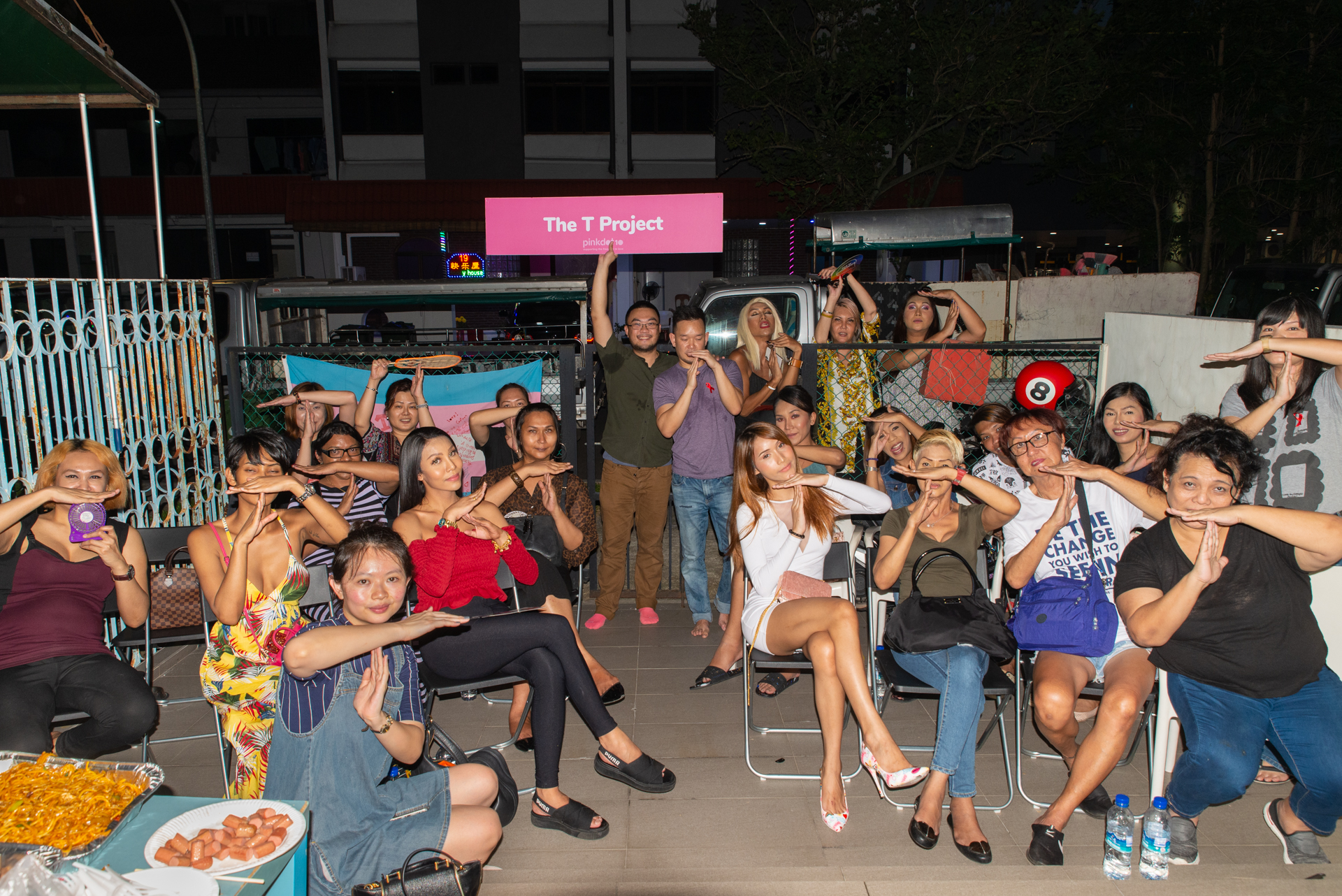With the three court challenges launched against 377A, social media is once more awash with cautionary tales of what will happen if homosexuality gets decriminalised. Singapore will be sent down a slippery slope of sexual degeneracy, they claim, and transgender people will start wanting rights too.
It’s understandable why some people are alarmed. If the stories are to be believed, transgender activists want a world where you’ll be fined for accidentally getting someone’s gender wrong, biological men in women’s sports win Singapore an unending stream of Gold medals, and confused teenagers are brainwashed into changing their sex, only to regret it and commit suicide.
The problem is that none of these things are true. They stem from misinformation and ignorance about transgender people, and have very little basis in reality.
TransgenderSG is currently the only organisation in Singapore advocating for transgender rights at the policy level. We are a small group of local volunteers with full-time jobs or school who find it hard enough to meet up for dinner, let alone orchestrate a grand plan to take over society. Roughly half of us are Christians.
With this article, we would like to share with you what we actually want, and to assure you that no trans activist is going to say: “Wah, your boy boy don’t like sports ah? Come, come, I chop off his kukubird.”

Many transgender people in Singapore face abuse and rejection from their families. They may be kicked out of their homes, sent for damaging conversion therapy, or forbidden from seeing or speaking to relatives who are then left confused and broken-hearted at their absence. Other families remain in denial about their transition, creating tensions that hamper family bonding and frank conversation.
In Singapore, a marriage risks annulment if one spouse is transgender and changes their legal sex. If annulled, they could lose custody of their children, their HDB flat, and access to policies and resources otherwise available to married couples. Instead of protecting families as they were meant to do, those policies end up destabilising thriving families and disrupting their children’s lives and security.
We believe in protecting all families.
One of our goals is to equip Singaporean families with the information to understand, love, and support their transgender loved ones. We also want them to be able to receive the support that they themselves often need when a family member comes out as transgender.
We hope for a future where no happily married couple has to fear being forced to separate, and where all parents can have the assurance that their children will be able to grow up and flourish in a stable environment.
Being transgender is often simplistically described as being “a woman in a man’s body”, and vice versa. This mismatch leads to distress known as gender dysphoria that can range from negligible to debilitating. Some transgender people are non-binary, where being male or female both feel wrong and they are most comfortable somewhere in between.
Unaddressed or repressed gender dysphoria can lead to depression, anxiety, and suicide. In contrast, decades of studies have consistently shown that social and/or medical gender transition successfully resolves gender dysphoria, improves mental health, reduces suicide attempts and enables transgender people to thrive.
While accessing transgender healthcare in Singapore has long been a difficult and expensive process, the situation has improved over the last 2-3 years. We hope to continue improving access to affordable care with experienced doctors.
This is a good thing, not just for the transgender community, but also those who are afraid of people being misdiagnosed—such as someone whose desire to transition might stem from sexual trauma or internalised homophobia that would be better handled through counselling.
We want transgender youths to likewise have access to high-quality diagnostic services and transition healthcare, with the proper support from their parents. Gender dysphoria that persists into adolescence will be lifelong unless resolved through transition. The earlier it is addressed, the better the long-term outcome is proven to be.
As it is, lack of access to proper healthcare does not stop desperate transgender youths from medically transitioning. Many end up getting hormones or surgery on the black market, or even attempt to perform surgery on themselves. This is extremely dangerous and has led to deaths. But when someone is suffering badly and sees no other way out, that danger isn’t enough to stop them.
We provide information on our website to ensure that anyone who needs to medically transition is able to do so in a safe and regulated healthcare environment that does not put their life at risk.

Last year, a quantitative study conducted by the Asia-Pacific Transgender Network found that transgender job applicants in Singapore experience the most discrimination compared to those in Malaysia, Vietnam, and Thailand. Trans applicants here were less than half as likely—48.5%—as an equally qualified non-trans candidate to get called up for a job interview. In comparison, this was 60% in Malaysia, 68.5% in Vietnam and 75% in Thailand.
The discrimination was worst for trans people with the highest educational qualifications. Making it difficult for educated trans people to contribute to the workforce doesn’t just hurt them but is also a waste of our educational budget and limited workforce.
One of our teammates is a young trans woman from Malaysia. She was born and raised in Singapore and is currently pursuing her Masters degree at NUS, where she holds multiple student leadership positions. She and her brother both applied for Singapore citizenship a few years ago. While her brother got it almost immediately, she was rejected twice after waiting almost a year each time.
While the rejections may have been unrelated to her transgender status, it has made it impossible for her to change her NRIC to reflect her current name and appearance. Other than obtaining Singapore citizenship, the only way for her to do so would be to change those details in Malaysia. But that would be extremely dangerous. Transition is illegal in Malaysia, and trans people there have been murdered, with many more subject to physical or sexual abuse by police and government officials.
This has left her effectively undocumented and unable to verify her identity—preventing her from accessing common public services in Singapore or applying for jobs that would help her provide for her parents and herself.
When we get fired for being trans or face discrimination in the job market, it affects our ability to support not just ourselves but also our families. This leaves our other family members to take on the extra burden, and is especially devastating to low-income households and parents with no other children to rely on.
We would like companies to be open to hiring qualified transgender applicants and to provide safe working environments free of harassment and abuse.
We don’t want to destabilise society. We want to strengthen it, and to work towards a Singapore where every individual can feel safe, valued, supported.
Changing your legal sex in Singapore requires a “complete” change of genitalia. Or, as ICA officers put it, “You got penis or not?”
Genital surgery is extremely expensive. Surgical options start at tens of thousands of dollars for transgender women. For transgender men, it can go up to $150k and requires multiple surgeries over 1-2 years, with permanent damage to the arm or leg that is used as a donor site.
As this is not available in Singapore, trans people have to add the cost for overseas travel and accommodation. Genital surgery also carries a high risk of complications, which can be life-threatening and add significantly to the bill. This comes in addition to the considerable cost and risk of other surgeries, such as a mastectomy and hysterectomy, which trans men commonly seek. None of this is covered by insurance.
Most transgender people simply cannot afford this. Others have existing health conditions that mean surgery could kill them. Some would prefer to wait for better surgical techniques. Some don’t think the cost, pain, side effects and long recovery times—which would require months off work—are worth it. Others are fine with their genitals as they are, even if they may be not what they would prefer.
Each trans person has different requirements when it comes to what they can afford and what they need to be comfortable with their bodies. They should not be pressured into debt and risk their lives for surgeries they may not even want.
However, many trans people undergo hormone therapy to alleviate gender dysphoria. This alters our biological secondary sexual characteristics and has the most dramatic impact on physical appearance. It is also much cheaper and safer.
As a result, many trans people in Singapore look like one sex but are legally another. It causes a lot of administrative confusion, and forcibly outs trans people to strangers whenever an NRIC or passport needs to be shown—which can be especially dangerous when in countries that are openly hostile to transgender individuals.
We have been contacted by dozens of trans people who couldn’t afford or didn’t want to have surgery but felt they had to, because having mismatched documentation was making it difficult for them to find employment, housing, or just to go safely about their lives.
Medical decisions should always prioritise the patient’s welfare. Fulfilling administrative criteria should never be a factor in deciding whether you need to have major surgery.
We believe in instituting reasonable criteria that are strict enough to avoid abuse, while taking into account the realities of trans people’s lives and the multi-faceted treatment process of gender dysphoria.
Making it easier to obtain legal gender recognition will enable more trans people to fully participate in and contribute to society, and safeguard our security and dignity as we move through the world.
Unlike everyone else, many trans people in Singapore are unable to marry anybody regardless of sex. Registry of Marriage (ROM) guidelines require that a couple presents themselves in attire respecting “the spirit of marriage as the union between one man and one woman.” Failure to do so to ROM’s satisfaction means they will be turned away.
So, say there’s a transgender man who is still legally female but has undergone hormone therapy and no longer looks sufficiently womanly in a gown, even if he shaves. ROM would not allow him to marry a man. At the same time, under Singapore law he would not be allowed to marry a woman, as they have the same legal sex.
This makes many transgender people the only single Singaporeans who are legally excluded from marriage and its associated benefits, regardless of sexual orientation. Most notably, they cannot apply for a HDB flat before the age of 35, while facing discrimination in the rental and HDB resale markets and when searching for a roommate.
Those from unsupportive families who are unable to afford rent or private housing are thus at high risk of homelessness. They may tolerate abuse from their families or partners just so they have somewhere to live.
Trans activist June Chua founded The T Project to fill this gap and provide food and shelter to homeless transgender women, who are sometimes turned away from other shelters. The T Project is funded by donations from the public. However, trans people should not have to depend solely on public goodwill to have a place to sleep.
We would like there to be more consistent, coherent and reliable policies that don’t unfairly penalise trans people by accident, and enable them to have access to safe and affordable housing.

At this point, some of you might be rushing to post links to shocking articles about what trans activists have allegedly done overseas, and claim that we’re lying. But trans activists in Singapore don’t want those things, any more than the average conservative here wants to be able to buy guns at NTUC. Our culture, circumstances and people are different.
We don’t want to destabilise society. We want to strengthen it, and to work towards a Singapore where every individual—both transgender and not—can feel safe, valued, supported, and able to live up to their fullest potential.
That is the only agenda we have.






